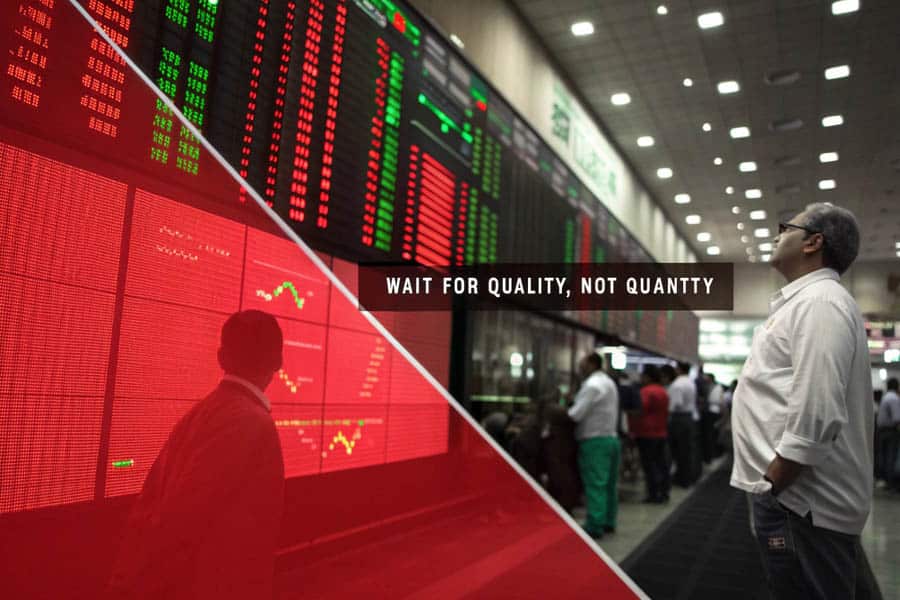In the fast-paced world of currency markets, patience isn’t just a virtue—it’s a necessity for survival and success. Many traders approach forex markets with dreams of quick riches, only to discover that impulsive decisions and constant trading often lead to depleted accounts and shattered confidence. The importance of patience in forex trading cannot be overstated, especially when working with a regulated forex broker in today’s volatile markets.

Without sufficient patience, traders frequently fall into destructive patterns: overtrading, chasing losses, or abandoning sound strategies at the first sign of difficulty. These behaviors create a vicious cycle of emotional trading that damages both accounts and psychology. Developing patience as a fundamental skill offers the solution to these common pitfalls, allowing traders to wait for high-probability setups, manage risk effectively, and achieve the consistent profitability that initially drew them to forex trading.
Importance of patience in forex trading
This section delves into why patience is not just beneficial but absolutely crucial for achieving success in the forex market. It highlights how importance of patience in forex trading directly impacts trading outcomes and helps in building a sustainable trading career.

Patience as a Key to Success
Successful trading isn’t about constant action or activity—it’s about waiting for the right opportunities to present themselves. Patience allows traders to identify and capitalize on high-probability setups rather than forcing trades during unfavorable market conditions. As noted by experts in the field, “trading isn’t about rushing in; it’s about waiting for the right opportunity to execute a well-thought-out plan”. This patience-centered approach ensures that when you do take action, it’s with conviction and a clear strategic advantage.
The market doesn’t reward activity; it rewards correct positioning at the right time. Many novice traders mistakenly believe they need to be constantly active to be profitable, but research shows the opposite is true. The most successful traders often execute fewer, higher-quality trades rather than numerous mediocre ones. By exercising patience, traders can significantly improve their win rates and risk-reward ratios, two critical factors in long-term profitability.
Market patterns don’t occur continuously, and trying to force trades during quiet periods typically leads to losses. Patient traders understand that trading success might come in concentrated periods—you may spend months with minimal activity, then capture substantial profits during a brief period of ideal market conditions. This uneven distribution of opportunity is why patience is fundamental to forex success.
Avoiding Impulsive Decisions
Impulsivity in trading can be detrimental, leading to emotional decisions that often contradict sound strategies. Understanding how patience helps in avoiding these pitfalls is key to maintaining discipline and protecting your trading capital. This is a key aspect of the importance of patience in forex trading.
Impulsive trading decisions are often emotional reactions rather than strategic choices. Fear of missing out (FOMO), revenge trading after a loss, and excitement-driven entries are common emotional triggers that lead to poor trade execution. Without patience, traders frequently enter positions prematurely, exit too early or too late, and disregard their predetermined risk parameters.
Research on trading psychology has consistently shown that emotional decision-making is one of the primary causes of trading failure. When emotions drive trading decisions, even the most technically sound strategy will fail in execution. Patience acts as a buffer against emotional reactivity, allowing traders to maintain discipline during market volatility.
Patience also helps traders avoid the dangerous habit of “chasing the market”—entering after a significant move has already occurred. This common mistake typically happens when traders, afraid of missing an opportunity, abandon their entry criteria and jump into trades too late. Patient traders can resist this urge, understanding that missing some opportunities is preferable to taking poor-quality trades.
Long-Term Benefits of Patient Trading
The advantages of patience extend beyond immediate trade outcomes, significantly influencing long-term profitability and psychological well-being in trading. This section explores the lasting benefits of adopting a patient approach, reinforcing the importance of patience in forex trading.
Patience contributes directly to consistent profitability through improved risk management. Patient traders maintain appropriate position sizing, respect their stop-loss levels, and allow winning trades to develop fully. This disciplined approach preserves capital during inevitable drawdown periods and maximizes returns during favorable market conditions.
The compounding effect of patient trading cannot be overstated. By avoiding the significant drawdowns that impatient traders frequently experience, patient traders keep more capital working for them. Even modest but consistent returns compound dramatically over time, while the severe losses caused by impatience can require years to recover from.
Perhaps most importantly, patience fosters psychological resilience—the ability to maintain emotional equilibrium through the inevitable ups and downs of trading. This resilience becomes self-reinforcing as traders experience the benefits of patient execution, creating a virtuous cycle of improved decision-making and results.
How to Develop Patience in Forex Trading
Developing patience is not an innate trait but a skill that can be cultivated through conscious effort and the right strategies. This section provides actionable steps and mindset shifts to help traders enhance their patience levels and understand how to be patient day trading.

Focus on Process Over Profits
Developing genuine patience requires a fundamental shift in how traders measure success. Rather than focusing exclusively on profit and loss statements, patient traders emphasize adherence to their trading process and strategy. This process-oriented approach recognizes that trading outcomes in the short term contain a significant random element, while process quality determines long-term results.
Creating and following a detailed trading plan is essential to this process focus. A comprehensive plan includes specific entry and exit criteria, risk parameters, and the conditions under which you’ll stay out of the market entirely. By committing to this plan in advance, traders create an objective framework that helps them resist impulsive decisions.
Defining your edge—the specific market conditions that your strategy exploits—further strengthens patience. When traders clearly understand what constitutes their edge, they become more comfortable waiting for these specific conditions rather than trading indiscriminately. This focused approach naturally reduces overtrading while improving overall results.
Read More: The Mindset of a Successful Trader
Trading Journal: Building Patience Through Self-Awareness
Self-awareness is critical in developing any skill, and patience in trading is no exception. Utilizing a trading journal can be a powerful tool to understand your trading behaviors and identify areas for improvement in patience, especially when learning how to be patient day trading.
A detailed trading journal serves as both a record of past trades and a tool for developing greater patience. By documenting not only trade outcomes but also the reasoning behind entries and exits, traders gain objective insights into their decision-making processes. This self-awareness is crucial for identifying patterns of impatience and their consequences.
Effective journaling includes recording emotional states before, during, and after trades. This practice helps traders recognize emotional triggers for impatient actions, such as boredom during quiet market periods or anxiety after losses. Once identified, these triggers can be addressed through specific psychological techniques and trading rules.
Regular review of journal entries reveals the relationship between patience and profitability over time. Traders can analyze their best and worst trades, often discovering that patience-related factors (waiting for setup completion, allowing trades to develop fully, etc.) distinguish profitable trades from losing ones. This evidence-based approach creates powerful motivation for developing greater patience.
Mindset Shift: Trading as a Marathon
Adopting the right mindset is crucial for long-term success in trading. Viewing trading as a marathon rather than a sprint can significantly enhance patience and reduce the pressure for immediate results, underlining the importance of patience in forex trading.
Reframing trading as a long-term profession rather than a get-rich-quick scheme is fundamental to developing patience. Professional traders approach the market with a business mindset, understanding that consistent profitability comes through sustained application of proven methods rather than spectacular single trades.
This marathon mindset helps traders maintain perspective during inevitable drawdown periods. Rather than panicking or abandoning their strategy after losses, patient traders see these challenges as normal parts of the trading journey. This resilience is crucial for long-term success, as even the best strategies experience periods of underperformance.
Educational development further reinforces the marathon approach. Patient traders invest time in continuous learning, understanding that mastery develops gradually through experience and study. This commitment to ongoing improvement creates a foundation for sustainable trading success, contrasting sharply with the quick-profit mentality that characterizes impatient trading.
Read More: Forex Trading Discipline
The Role of Discipline in Building Patience
Discipline and patience are intertwined and mutually reinforcing qualities in trading. Discipline provides the framework within which patience can flourish, leading to more consistent and strategic trading decisions. Mastering how to be patient day trading heavily relies on discipline.

Discipline and Preparation
Discipline and patience function as complementary skills in forex trading—discipline provides the structure that makes patience possible. Without disciplined preparation, traders lack the confidence to remain patient during market volatility or extended waiting periods.
Thorough market analysis forms the foundation of this preparation. By conducting detailed fundamental and technical analysis before market open, traders create a clear framework for potential trades. This preparation reduces uncertainty and the anxiety it produces, making it easier to wait for appropriate entry conditions rather than trading impulsively.
Backtesting—analyzing how a strategy would have performed on historical data—further strengthens disciplined patience. Traders who have verified their strategy’s effectiveness through rigorous testing gain confidence in their approach, making it easier to trust the process during live trading. This evidence-based confidence directly supports patient execution.
Emotional Control: The Discipline of Mind
Emotional control is a critical aspect of discipline, particularly in the high-pressure environment of forex trading. Mastering your emotions enables you to apply patience consistently, even under stress and is crucial to realize the importance of patience in forex trading.
Emotional discipline serves as a prerequisite for trading patience. Without the ability to manage emotions like fear, greed, and boredom, even traders who intellectually understand the importance of patience in forex trading will struggle to implement it consistently.
Developing emotional awareness is the first step toward this discipline. Traders must learn to recognize emotional states that trigger impatient behavior, such as excitement leading to premature entries or fear causing premature exits. This self-awareness creates the opportunity for conscious choice rather than emotional reaction.
Specific techniques for maintaining emotional discipline include:
- Implementing “cooling-off periods” after losses before placing new trades
- Using checklists to ensure objective evaluation of potential trades
- Establishing fixed trading hours to prevent decision fatigue
- Practicing mindfulness techniques to manage anxiety during volatile market periods
These structured approaches provide practical support for the emotional discipline that makes patience possible.
Read More: Trading Psychology in Forex
Practical Tips for How to be patient day trading
Day trading, with its fast-paced nature, often tests traders’ patience to the limit. This section offers specific, actionable tips on how to be patient day trading and cultivate patience effectively in this dynamic trading style.

Wait for High-Probability Setups
The foundation of patient day trading is selective trade execution—taking only those setups that offer the highest probability of success. This selective approach requires clearly defined criteria for what constitutes an ideal trade, allowing traders to objectively assess potential opportunities.
Developing a library of “go-to” setups—specific price patterns or market conditions that have proven profitable—helps traders remain patient during suboptimal market periods. When traders know exactly what they’re looking for, they become more comfortable waiting for these specific conditions rather than forcing trades out of boredom or FOMO.
Confidence in these high-probability setups comes through experience and verification. By tracking the success rate of different setup types in their trading journal, traders gain objective evidence about which conditions truly deserve their capital. This evidence-based approach naturally encourages patience, as traders become reluctant to risk money on suboptimal opportunities.
Timing Entries and Exits
Precise timing is crucial in day trading, and patience plays a vital role in both entry and exit strategies. Waiting for confirmation and allowing trades to develop are key aspects of patient execution when considering how to be patient day trading.
Patience plays a crucial role in trade execution timing. Even when a valid setup occurs, patient traders wait for confirmation before entering, reducing the risk of false breakouts or reversal traps. This methodical approach might occasionally miss opportunities but significantly improves overall win rates.
The concept of “letting trades breathe” reflects patience during active positions. Rather than micromanaging trades or exiting at the first sign of adversity, patient traders allow market movements to develop according to their anticipated scenario. This patience prevents premature exits that cut profitable trades short before they realize their full potential.
Strategic exit planning further enhances trading patience. By establishing target levels and exit criteria before entering trades, traders create objective guidelines for managing positions. This systematic approach reduces emotional decision-making during active trades, when psychological pressure is often highest.
Limit Screen Time: Less Can Be More
Contrary to popular belief, more screen time doesn’t necessarily translate to better trading results. In fact, excessive screen time can often lead to fatigue and impulsive decisions. Reducing screen time can actually improve patience and trading effectiveness, supporting how to be patient day trading.
Contrary to common beginner assumptions, constant market monitoring typically reduces trading effectiveness. Extended screen time increases the temptation to overtrade, as traders feel pressured to “do something” to justify their time investment.
Implementing structured trading sessions—specific times dedicated to market analysis and potential execution—helps traders maintain both focus and patience. This scheduled approach prevents the fatigue and diminished judgment that often occur during extended market-watching periods.
For many traders, reducing information overload directly improves patience. Limiting news consumption, social media trading discussions, and even the number of technical indicators can create a clearer decision-making environment. This simplified approach makes it easier to identify and wait for genuine opportunities rather than reacting to market noise.
Benefits of Patience in Day Trading
Patience is particularly rewarding in the fast-paced environment of day trading. This section outlines the specific advantages that patience brings to day trading performance and psychological well-being, highlighting how to be patient day trading pays off.

Improved Decision-Making
In the heat of day trading, clear and rational decision-making is paramount. Patience significantly enhances decision quality by minimizing emotional interference and promoting strategic thinking.
Patient trading directly improves decision quality through reduced emotional interference. When traders can wait calmly for ideal conditions, they maintain the analytical clarity necessary for effective trade evaluation and execution.
This enhanced decision-making extends to all aspects of trading—from initial market analysis to trade management and final exit decisions. Patient traders consistently make more objective, strategy-aligned choices throughout the trading process.
The cumulative effect of these improved decisions creates a significant edge over time. While any single patient decision might have a modest impact, the compound effect of consistently better choices throughout hundreds or thousands of trading decisions produces dramatic improvements in overall results.
Minimized Losses: The Protective Power of Patience
Risk management is crucial in day trading, where rapid market movements can lead to quick losses. Patience acts as a powerful risk management tool, helping to minimize unnecessary losses and protect trading capital, showing the importance of patience in forex trading for risk management.
Patience serves as one of the most effective risk management tools available to traders. By waiting for optimal setups rather than forcing trades during unfavorable conditions, patient traders naturally reduce their exposure to unnecessary losses.
Loss minimization has an outsized impact on long-term profitability due to the mathematics of drawdown recovery. A 50% loss requires a 100% gain just to break even, highlighting why avoiding significant drawdowns through patient trading is so crucial for sustainable success.
Patient trade management further reduces loss severity. By giving trades appropriate room to develop rather than panicking at minor adverse movements, patient traders often avoid being stopped out of positions that ultimately become profitable. This management approach significantly improves the risk-reward ratio of trading activities.
Enhanced Confidence: The Psychological Advantage
Confidence is a vital psychological asset in trading. Patience, when consistently applied, builds a solid foundation of confidence rooted in process and strategy, rather than fleeting outcomes. This psychological advantage underscores the importance of patience in forex trading.
Consistent application of patient trading principles builds genuine confidence based on process rather than outcomes. This authentic confidence differs fundamentally from the false bravado that often characterizes impatient trading.
This confidence creates a positive feedback loop with patience itself. As traders experience the benefits of patient execution, their trust in their process grows, making it easier to maintain patience during future market conditions. This self-reinforcing cycle becomes a significant psychological advantage.
Perhaps most importantly, patience-based confidence withstands the inevitable challenging periods that all traders face. Rather than abandoning their approach during drawdowns, confident traders maintain their discipline, understanding that adherence to proven principles will ultimately deliver positive results.
Common Mistakes Due to Impatience
Understanding the common pitfalls of impatience can help traders identify and avoid these destructive behaviors. This section outlines frequent mistakes that stem from a lack of patience in trading and hinder understanding of the importance of patience in forex trading.
Impulse Trades and Market Chasing
Acting on impulse and chasing market movements are classic examples of impatient trading. These actions often lead to poor entries, increased risk, and ultimately, losses.
Impulsive trading—entering positions without thorough analysis or clear strategic rationale—represents one of the most common manifestations of trading impatience. These emotion-driven decisions typically occur when traders prioritize action over analysis.
The related mistake of “chasing the market” happens when traders enter after significant price movements have already occurred. This impatient behavior typically stems from FOMO—the fear that an opportunity is slipping away. Ironically, positions entered due to this fear often become losing trades as the market reverses from extended conditions.
Breaking established trading rules represents another form of impatience-driven impulsivity. When traders ignore position sizing limits, enter outside their trading plan, or override their own risk parameters, they expose themselves to outsized losses that can have devastating effects on both their accounts and psychology.
Mismanaging Winners and Losers
Patience is not only important for trade entry but also for managing trades effectively. Impatience can lead to premature exits from winning trades and delayed exits from losing trades, both of which can negatively impact profitability. Recognizing the importance of patience in forex trading includes trade management.
Prematurely exiting winning trades—often called “leaving money on the table”—frequently stems from impatience with normal market volatility. Traders who cannot tolerate the inevitable pullbacks that occur during trending moves often exit positions far before they reach their profit potential.
Conversely, reluctance to accept losses—allowing losing positions to grow beyond predetermined risk parameters—reflects a different form of impatience. This behavior typically occurs when traders cannot accept the time required to recover from losses through their normal trading process, instead hoping that losing positions will magically reverse.
Both of these trade management errors significantly reduce long-term profitability. Patient traders avoid these mistakes by establishing and following clear exit criteria for both winning and losing positions, allowing their trading edge to manifest fully over time.
Overtrading After Losses: The Revenge Cycle
One of the most destructive manifestations of impatience is revenge trading. This cycle of increased activity and risk following losses can quickly deplete trading capital and damage trader psychology. Overcoming this requires understanding the importance of patience in forex trading recovery.
Revenge trading—increasing activity and risk after losses in an attempt to quickly recover—represents perhaps the most destructive form of trading impatience. This behavior typically begins with a normal loss but escalates as traders abandon risk management in their impatient pursuit of recovery.
This impatience creates a dangerous negative spiral: increased trading frequency combined with emotional decision-making leads to further losses, which then trigger even more aggressive trading. This cycle can rapidly deplete trading accounts and create significant psychological damage.
Breaking this cycle requires accepting that recovery from drawdowns occurs through the patient application of proven processes, not through increased risk or trading frequency. This acceptance allows traders to maintain consistent execution even after experiencing losses, a hallmark of professional trading psychology.
Opofinance Services: Supporting Patient Trading Strategies
Choosing the right broker can significantly support your efforts in developing and implementing patient trading strategies. This section highlights how Opofinance services can aid traders focused on patience and discipline, and those who understand the importance of patience in forex trading.
For traders focused on developing patience and discipline, having the right broker partnership is essential. Opofinance, an ASIC-regulated forex broker, offers several features particularly beneficial for traders implementing patient trading strategies:
- Advanced Trading Platforms – Trade on MT4, MT5, cTrader, and OpoTrade, allowing you to execute patient strategies with precision across multiple markets.
- Innovative AI Tools – Utilize AI Market Analyzer to identify high-probability setups worth waiting for, AI Coach to reinforce disciplined trading habits, and AI Support for immediate assistance.
- Social & Prop Trading – Learn patience from successful traders through social trading features while maintaining disciplined execution.
- Secure & Flexible Transactions – Safe and convenient deposits and withdrawals including crypto payments, with zero fees from Opofinance, allowing you to focus on trading strategy rather than account management.
- Professional Support – Access expert guidance when developing and implementing patient trading approaches across different market conditions.
Opofinance’s comprehensive suite of tools and services provides the technological foundation traders need to implement patient trading strategies effectively. Whether you’re developing new patience-based approaches or refining existing ones, the right platform enhances your ability to execute with discipline.

Ready to trade with patience and precision? Visit opofinance.com to learn more about their trading solutions.
Conclusion
In conclusion, the importance of patience in forex trading is paramount for achieving consistent profitability and long-term success. Cultivating patience is an ongoing journey that requires self-awareness, discipline, and the right mindset. By embracing patience, traders can significantly improve their decision-making, manage risk more effectively, and build a sustainable trading career.
The importance of patience in forex trading cannot be overstated. As we’ve explored throughout this article, patience serves as the foundation for disciplined execution, effective risk management, and long-term profitability in the currency markets. By waiting for high-probability setups, managing positions with strategic objectivity, and accepting that significant profits often come during concentrated periods rather than continuously, patient traders position themselves for sustainable success.
Developing trading patience is not a one-time achievement but an ongoing process that evolves through experience, self-awareness, and deliberate practice. Through maintaining trading journals, focusing on process over immediate results, and cultivating the mindset that trading is a marathon rather than a sprint, traders gradually build this essential skill. The discipline required for patient trading might initially feel restrictive, but ultimately creates greater freedom through improved results and psychological wellbeing.
Perhaps most importantly, patience transforms trading from a stressful endeavor driven by constant action and reaction into a methodical profession characterized by strategic decision-making and calculated execution. This transformation not only improves financial outcomes but also enhances the overall trading experience, creating sustainable careers rather than brief, often destructive, market participation.
Key Takeaways
This section summarizes the core principles and actionable insights discussed throughout the article, reinforcing the key messages about the role of patience in forex trading, and how to be patient day trading.
- Patience in forex trading means waiting for optimal conditions rather than forcing trades during unfavorable periods.
- Impatient trading typically manifests as overtrading, premature position exits, and revenge trading after losses.
- Developing patience requires shifting focus from short-term profits to process quality and long-term results.
- Trading journals provide objective feedback about the relationship between patience and profitability.
- Discipline and patience function as complementary skills, with disciplined preparation creating the foundation for patient execution.
- Scenario planning, statistical validation, and deliberate recovery protocols help advanced traders further enhance their patience.
- The right broker partnership provides technological tools that support the implementation of patient trading strategies.
How long does it typically take to develop trading patience?
Developing genuine trading patience typically takes 6-12 months of consistent practice and self-awareness. Most traders progress through several phases: initial intellectual understanding, irregular application during favorable conditions, and finally, consistent implementation even during challenging market periods. The process accelerates when traders use structured approaches like trading journals to objectively track the relationship between patience and results.
Can automation help traders become more patient?
Automation can serve as a useful tool for developing patience by removing emotional decision-making from trade execution. Algorithmic trading systems execute only when pre-defined conditions occur, naturally preventing the impulsive trades that characterize impatient trading. However, traders must be cautious not to use automation as a substitute for developing genuine patience, as psychological development remains essential for overall trading success, including system development and monitoring.
How does patience differ between long-term and short-term trading strategies?
While patience is crucial for all trading timeframes, it manifests differently depending on strategy duration. Day traders must exercise moment-to-moment patience during fast-moving markets, waiting for precise setups among numerous opportunities and avoiding the temptation to overtrade. Long-term traders need calendar-scale patience, often waiting weeks or months for appropriate entries and then maintaining positions through significant market volatility. Both require emotional discipline, but the psychological challenges differ substantially based on the compressed or extended timeframes involved.







